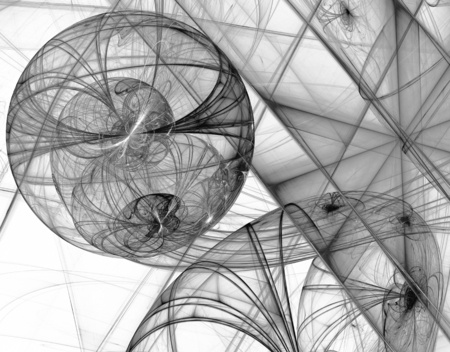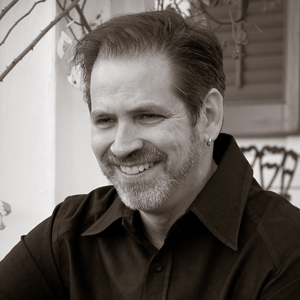If you don’t play jazz, blues, or some other type of music that involves spontaneous playing, you might wonder what purpose there is in learning to improvise. Sure, “jazzheads” can sit around listening to John Coltrane or some other historic figure, but how can this arcane skill be of any value to a contemporary musician? Listen to popular songs, film scores or even academic classical compositions, and you will hear very little improvised material. Even in the classic rock guitar-hero era, most solos were brief 8-bar affairs that could (and often were) pre-composed by the soloist. So what’s the point of putting in massive amounts of time for this “obsolete” skill? Why not just work it all out in advance?
Language
One of the reasons this skill is so beneficial, even outside of the styles mentioned above, is the idea of linguistic flow. When we speak, we develop the ways we use our vocabulary and the nuances of language in order to express ourselves clearly and with subtlety. (At least we hope to!) When we learn a new spoken language, we are at first quite stiff and blunt in our use of it, and small things can be quite wrong. (Try using Google Translate on a poem, and you will get the idea) Language and communication will not be at the level of “art” unless we develop fluency. Also, just like cultures, every musical style has its colloquial language that is difficult if not impossible to understand without immersion.
Gesture
We are complex creatures, and a great deal of our expression and wisdom comes from our kinesthetic senses. The way we move around, gesture, position our bodies, and give facial cues are all examples of how we communicate physically. Needless to say, animals don’t speak human language, but they make themselves understood nonetheless. Even the way we stand during a conversation is part of the equation. This is why playing an instrument or singing competently is so important to developing the flow of ideas. Even if we aren’t composing for our own instrument, the physical feeling of moving through the music is necessary. It’s possible I will get flack from “programmers” out there who will say that this physical connection to music isn’t that necessary, but I think the results often speak for themselves. If all the work is contrived without “being there” physically, there is a noticeable difference. Often, when listening to music, I find my fingers are moving as if I’m playing the keyboard. This is an example of the link between expression and technique; the body and our physical instincts are a big part of what we call “music.”
I used to think that as a composer, my playing was “in the way” and I would write the best music if I could somehow go straight from brain to page (or recording.) I have since realized that the flow of playing my instrument is part of that creativity, and that sometimes my hands “think” better than my conscious brain.
Space and Time
Those who have gotten into “the zone” when playing a solo will tell you that it is a transcendent thing, and that for a moment, we could somehow step outside time, existing in two places at once. Only a lot of practice, experience (and some chance) allows this kind of special flow. (This may explain “Keith Jarrett” moments of being distracted by a sneeze or cough during an improvisation.) Even when it isn’t that special, there is still the important skill of telling a story, abstract though it may be, that can only take place in the here and now. When we go back to the “regular” world of linear thought, we will make completely different choices. We need the balance between “thinking” and just “being” that these two types of creation allow. Only with skill and practice can we “forget” what we are doing enough to reach this state of expanded consciousness.
Confidence
Being able to do something with an effortless grace is not something that comes from thinking, reading or talking; it comes from doing, and there is no real replacement for the process of learning this. This feeling of control and mastery can allow us to create without the hesitation that comes with insecurity. If you have spent a large part of your life doing something, there is a special sort of grace that begins to show in how you go carry yourself. I can often tell how a student is going to sound just by watching them sit down at the keyboard. This doesn’t mean the innocence and wonder of something new isn’t valuable; we can recapture that in many ways, but there is a lot to not being a “beginner” anymore.
What’s Missing
The real danger of losing this physical creative flow isn’t confined to today’s computer-based music. Some classical players, in a quest for repertoire and perfection, often neglect this part of human expression. I have had students who, when deprived of printed music or memorized pieces, could find absolutely nothing to play. This, despite the legendary improvisatory powers of composers of the past. While the performance of pieces is clearly the top priority, I believe fully-developed musicianship needs the ability to manipulate the medium: this sometimes means making new music now, with understanding at all the levels from technical to harmony to abstract intent. When they don’t have any experience at this kind of thing, it deprives their performance of presence and meaning; big parts of their consciousness are switched off. Music is not a museum piece; it needs input from living beings.
While I have nothing against the use of sampling, manipulating loops and pre-composed clips is not the same as actually playing the music. I may be a dinosaur in believing this, but for the reasons above, I don’t think it tells the same story about the creator; this isn’t because it doesn’t sound good, but because the process that led to the music was superficial, without the same chances being taken. Whether we realize it or not, music is always reflection of our journey as artists, and the listeners, if they are paying attention, will sense this.
Do it Now
Here are some suggestions to “learn” to improvise. (or do it better)
- Spend a lot of time at your instrument, and experiment with the sounds you can create spontaneously, without playing memorized pieces.
- Learn where everything is: chords, scales, patterns. This is a lifelong pursuit, and getting deep into your playing is a great joy. Make these things familiar, like old friends.
- Don’t worry if you don’t sound the way you want. Keep trying, and figure out what you like to hear and move towards those things.
- Play with others, and toss ideas back and forth. Communicate with your fellow musicians.
- Study the music of others, and then try to incorporate the ideas that “lit up” your senses when you heard them.
It’s Not All Jazz
Our whole life is one big improvisation, and we all know how poorly things go when we aren’t fully present in our day-to-day existence. Why should our music be the one thing in our life we do without any of this spontaneity?


